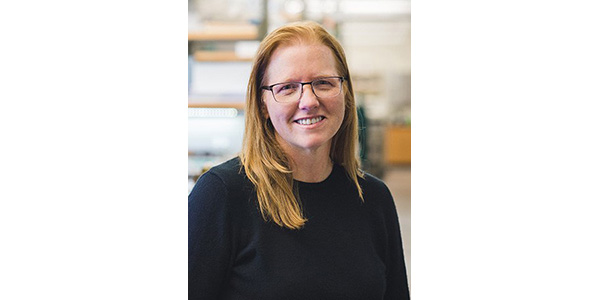“Dynamically Tunable Hydrogels through Bio-click Reactions and their Applications in Regenerative Biology”
Kristi S. Anseth, Ph.D.
Distinguished Professor, Department Chemical and Biological Engineering, University of Colorado
Time: 4:00 pm
Date: Tuesday, December 3, 2019
Place: Alder Auditorium
Professor Kristi S. Anseth is the Tisone Distinguished Professor of Chemical and Biological Engineering and Head of Academic Leadership of the BioFrontiers Institute at the University of Colorado at Boulder. Her research interests lie at the interface between biology and engineering where she designs new biomaterials for applications in drug delivery and regenerative medicine. Dr. Anseth is an elected member of the US National Academy of Engineering, the National Academy of Medicine, the National Academy of Sciences, the National Academy of Inventors, and most recently the American Academy of the Arts and Sciences. She is also a Fellow of the American Association for the Advancement of Science, American Institute for Medical and Biological Engineering, Society for Biomaterials, American Institute of Chemical Engineers, and Materials Research Society. Dr. Anseth currently serves on the Board of Directors of the American Institute of Chemical Engineers, Board of Trustees for the Gordon Research Conferences, on the Scientific Advisory Board of the Allen Institute. She is also an editor for Biomacromolecules and Progress in Materials Science.
Abstract: The Anseth group focuses on the development of biomaterial matrices that can serve as advanced culture systems or in vivo delivery systems for primary cells. We exploit material chemistry as a tool to decipher how cells process signals from the extracellular matrix (ECM), and then use this information to design improved biomaterials that promote tissue regeneration. Specifically, we design synthetic ECM analogs that capture key features of the unique chemistry and physical properties of a cell’s niche—an environment that is not only tissue specific, but can be strikingly heterogeneous and dynamic. Unique to our approach is the ability to create cell-laden matrices in three-dimensional space in which the matrix properties can be changed on demand—so-called 4D biology. Here, our group has focused on the development of photochemical reactions to create tunable cell-laden matrices, for example, the thiol-ene photo-click reaction and complementary photo-clip reactions to introduce and remove biological signals from a complex milieu. These photochemical reactions not only proceed rapidly and with high specificity, but are bio-orthogonal, spatiotemporally controlled, and cytocompatible. This talk will illustrate how we leverage these and other reversible chemistries to create biologically responsive hydrogel matrices, and employ them to study the effects of matricellular signaling on diverse cellular functions and processes. For example, we exploit peptide-crosslinked PEG hydrogels to encapsulate stem cells and study how matrix density, degradability, elasticity, and adhesivity influence migration, proliferation, and differentiation. More recently, we have integrated photodegradable linkers into hydrogels and used these spatiotemporal controlled reactions to direct the growth and differentiation of stem cells into intestinal organoids.
For more information, contact Ms. Shirley Nollette (206) 685-2002 or nolletts@uw.edu.



